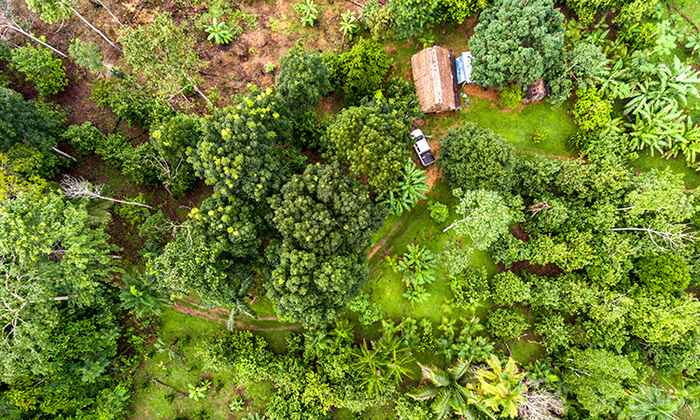Three new Seed Grants for sustainability research
5 September 2024

Beyond the Canopy: Spatial Analysis of the Anthropogenic Forest and Social-Ecological Function Nexus in the Amazon
The researchers behind “Beyond the Canopy”, Crystal McMichael (FNWI) and Fábio de Castro (FGW), will be focussing on how varying forms of agroforestry affect tropical forest biodiversity and functionality. Agroforestry systems in Amazonian rainforests are key examples of mutual human-environment interconnections. They cover a spectrum of forest-based production systems with different management intensities, from extraction of usable forest products to moderated management of multi-crop plantation of forest tree species, and forest species enrichment, such as cacao and açai palm.
McMichael and Fábio de Castro will integrate remote sensing analysis to classify agroforestry systems and assess aspects of forest functionality. They will be using ground-based ecological and sociological data and focussing on one agroforest case-study site in the Brazilian Amazon to address two research questions: to what degree can the three types of agroforestry systems (anthropogenic forests) be identified, differentiated, and categorized using remote sensing analysis? And, second, which socio-ecological functions can be associated with different types of anthropogenic forests (based on previous studies and ground-based qualitative data)?
From Pressure to Impact: Environmental Activism and the Transition to Sustainable Markets
The other funded team of researchers, Panikos Georgallis (FEB) and Peter van Dam (FGW), will be focussing in “From Pressure to Impact” on the question of which strategies used by activist in supporting sustainable markets will make them more or less successful. And in which contexts they are likely to succeed. They will conduct a pilot study to understand the impact of civic organizations on the energy transition over the past four decades across European countries.
Georgiallis’ and Van Dam’s broader aim is to develop an interdisciplinary project on how activist mobilization shapes sustainable markets. They envision a comparative perspective to examine the renewable energy market across all European Union countries, coupling longitudinal industry data with historical country case analyses supported by newspaper and (digital) NGO archives. The project will identify how activists’ strategies to oppose brown energy versus the promotion of green energy affect the transition to more sustainable energy, and how the social, political, cultural, and industrial context strengthens or hampers the impact of activists.
Rights of Nature: Intersecting Perspectives on Environmental Governance
This project explores how the "Rights of Nature" movement in the Netherlands interacts with traditional anthropocentric and ecocentric views rooted in Western frameworks. By examining Rights of Nature through the lenses of indigenous and Global South perspectives, the project will assess how this narrative can reshape environmental policy and advocacy in Europe.
Overall project goal: To map Rights of Nature stakeholders in the Netherlands, facilitate interdisciplinary collaboration, and identify connections with Global South ideologies. The study will provide insights into how Dutch Rights of Nature efforts reflect or contrast with global interpretations, informing both policy and civil society.
Project team: Laura Burgers (FdR), Gabriela Russo Lopes (CEDLA-FGw), Matteo Fermeglia (FGw), Colin Hicks (FMWI), Fabio de Castro (CEDLA-FGw).